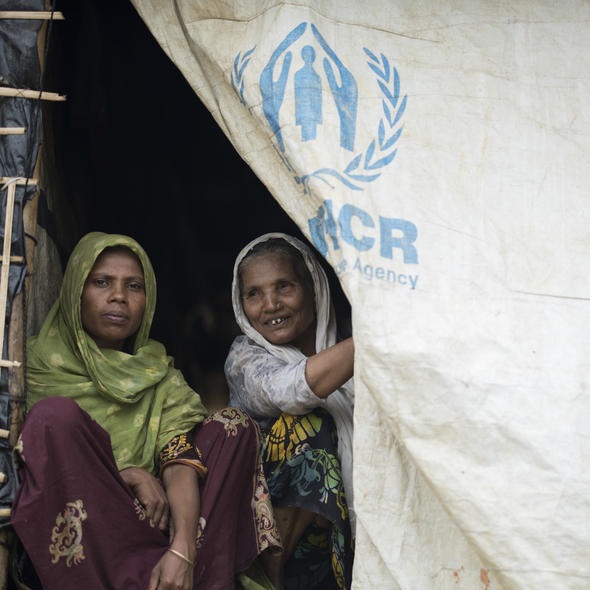Health Access and Utilization Survey 2022
Malaysia, 2022 - 2023
Get MicrodataIdentification
UNHCR_MYS_2022_haus_anon_data_v2.1
Health Access and Utilization Survey 2022
| Name | Country code |
|---|---|
| Malaysia | MYS |
Demographic and Health Survey [hh/dhs]
Health access and utilization survey (HAUS) is a cross-sectional, household telephone survey designed by the Public Health Section as a tool to determine refugees’ access to, utilization of, and coverage of key health services across different levels of health facilities as well as to identify critical factors and challenges faced by refugees that may affect health access in a timely manner. UNHCR Malaysia conducted the survey in December 2022 with the help of 23 enumerators and successfully collected data from 718 households comprising of 1,760 individuals. Informed consent was obtained prior to the start of the interview.
The average age of the respondents was 34 years (SD = 9 years). Majority of the households were male-headed (87%), married (55%), currently in some form of employment (83%) and originated from Myanmar (74%). Among the head of households, knowledge of available health services were lacking with a third of them (30.8%) unaware of subsidized care at government health facilities for UNHCR document holders while more than half of them were unaware of the availability of hospitalization assistance as provided by IMARET. Nevertheless, most households were able to access health care when needed (93%) although affordability remained a major barrier. The average amount paid by households for primary health services was MYR164 while hospitalization care could cost as much as MYR5,197 on average. In terms of childhood vaccination, 78% children under 5 were able to receive measles or MMR vaccination mainly from government health facilities. However, it is worth noting that the finding did not indicate whether the children had completed the required doses for MMR. Access to reproductive health services remain challenging with slightly more than half of pregnant women faced difficulties accessing antenatal care due to financial barrier. The average cost of delivery care paid by the respondents was MYR3,600. In terms of family planning, only 45.1% received family planning counselling or services post-delivery. Non-communicable diseases were emerging as another health concern affecting as many as 10% of the total households. The top three most common NCD were hypertension, diabetes mellitus and musculo-skeletal diseases. As a result of inclusive national COVID-19 vaccination programme, refugees benefitted from the initiative with 92.6% completing the required doses and 74.6% receiving a booster dose. In summary, findings from this survey indicated the need to strengthen health awareness and information dissemination among refugees while sustainable health financing will help to ease the financial barrier faced by most refugees in need of health services. Advocacy for inclusion in the national health programming in key areas namely communicable and non-communicable diseases, childhood immunization, safe motherhood and family planning will help to promote better health outcomes for refugees.
Sample survey data [ssd]
Households and individual
Version
v2.1: Edited, cleaned and anonymised data
2023-06-15
Scope
The questionnaire was divided into 12 different sections focusing on different key areas which include demographic information, child immunization, reproductive health practices, chronic diseases, mental illness and disability, access to health care in the past month, hospitalization access, health care expenditure, COVID-19 vaccination, knowledge of available health services, food security, access to health insurance and health communication
| Topic |
|---|
| Health and Nutrition |
| Health |
| Education |
| Environment |
| Livelihood and Social cohesion |
| Gender Based Violence |
| Health Care Referral Services |
Coverage
National
Registered Refugees in Malaysia 2022
Producers and sponsors
| Name |
|---|
| UNHCR |
Sampling
Simple Random Sample
Data collection
| Start | End |
|---|---|
| 2022-12-19 | 2023-01-08 |
- Computer Assisted Telephone Interview [cati]
Data Access
UNHCR (2023). Malaysia: Health Access and Utilization Survey 2022. Accessed from: https://microdata.unhcr.org
Contacts
| Name | Affiliation | |
|---|---|---|
| Curation team | UNHCR | microdata@unhcr.org |
Metadata production
UNHCR_MYS_2022_haus_anon_data_v2.1
| Name |
|---|
| UNHCR |
2023-06-21
